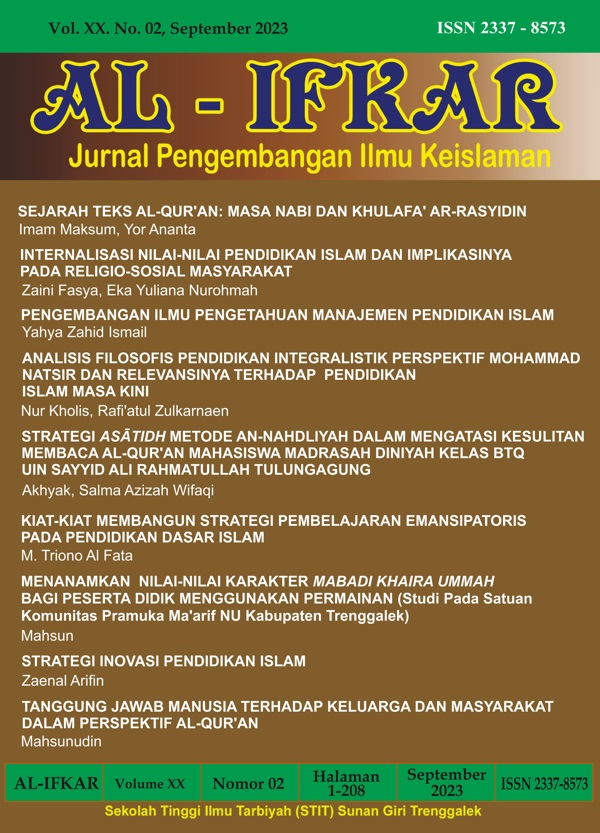MENANAMKAN NILAI-NILAI KARAKTER MABADI KHAIRA UMMAH BAGI PESERTA DIDIK MENGGUNAKAN PERMAINAN
Studi Pada Satuan Komunitas Pramuka Ma’arif Nu Kabupaten Trenggalek
Abstract
There are various ways and methods used by educational institutions to instill character values in their students. Along with the development of science and technology, choosing the right way and method for instilling values is very important. This is because no matter how good the values to be instilled, if the methods or methods are not appropriate, the expected results will be less than optimal. Likewise, with the cultivation of Islamic character and NU values amidst the increasingly rapid flow of globalization. Students' tendencies towards games that are individualistic and fatalistic need to be balanced with games that are outdoor, recreational and educational. Educational outdoor games provide opportunities for students to learn cooperation, cohesiveness, tolerance, honesty and discipline. Apart from that, outdoor games will also encourage students to work hard, increase creativity, be independent, democratic, stimulate curiosity, national spirit, leadership, cooperation, social care, and strengthen a sense of responsibility. Internalizing the values of Mabadi Khaira Ummah, such as: As Shidqu, Al Amanah wal Wafa bil 'Ahdi, Al 'Adalah, At Ta'awun and Al Istiqomah can be done with games specifically designed for that purpose. The formation of the Ma'arif Nahdlatul Ulama Scout Community Unit and the establishment of mandatory extra-curricular scouting education in formal education environments in primary and secondary education, further strengthens the effectiveness of this game.
Keywords: Character, Scouting Game, Mabadi Khaira Ummah


